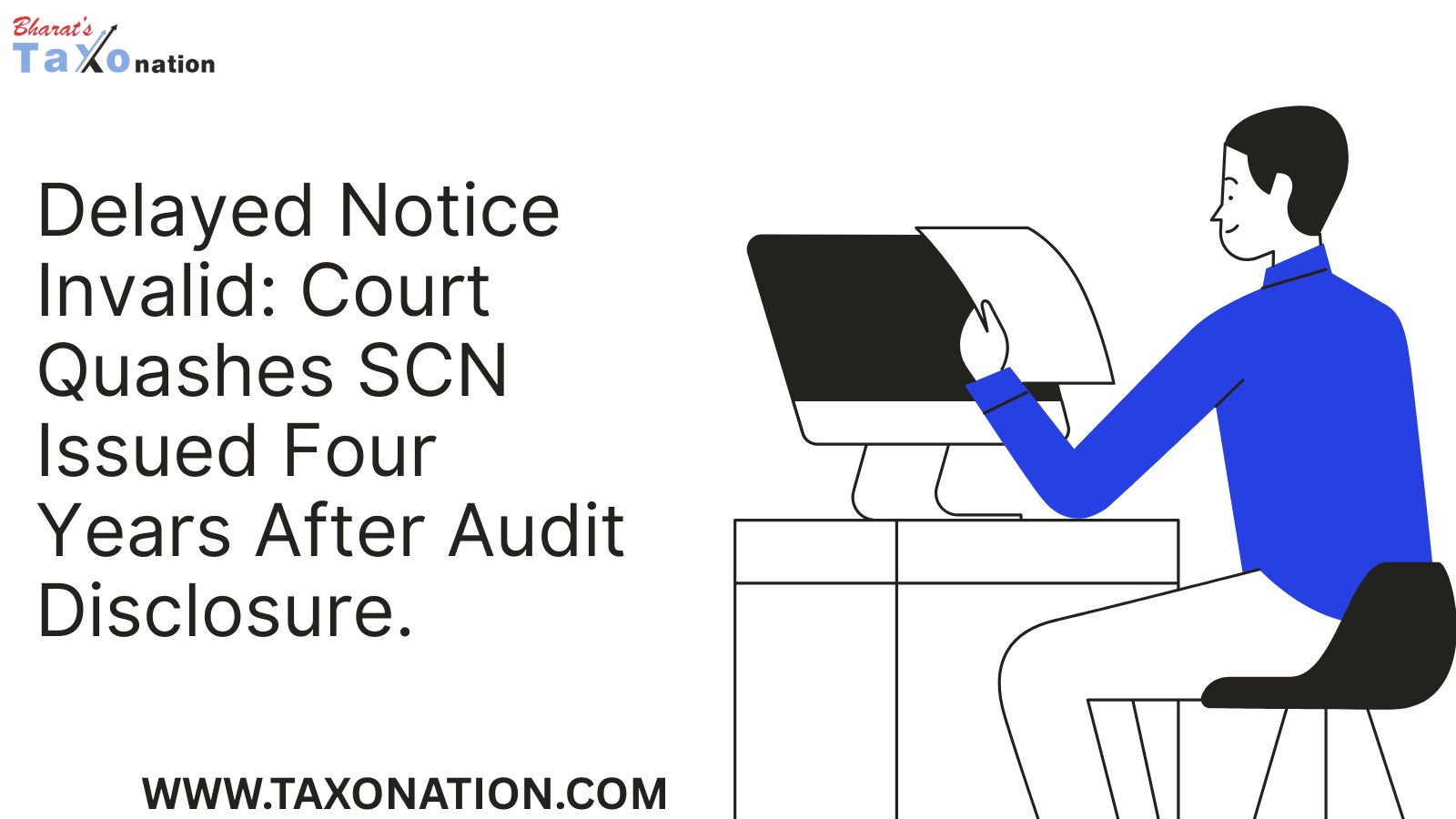
The High Court has quashed a show-cause notice issued under Section 73 of the CGST Act, citing lack of jurisdiction. The intra-court appeal, filed by the writ petitioners, challenged an earlier order dated 28th November 2023 in W.P.A. 23893 of 2023, which directed them to respond to the show-cause notice issued by the Assistant Commissioner of CGST & CX, Park Street Division, Kolkata South Commissionerate, on 18th September 2023.
Background of the Case
The appellants, engaged in the trading and import of Ethers, Ether Alcohols, and Ether Phenols under CTH-2909 of the Customs Tariff of India, had transitioned from the service tax and Central Excise regimes to the GST framework on 1st July 2017. They duly filed the TRAN-1 form on 9th November 2017 to carry forward unutilized CENVAT credit from the earlier regime.
Despite furnishing necessary documents to the authorities since 2018, the appellants faced continuous scrutiny regarding the verification of their transitional credit. The investigation process dragged on for over four years without any conclusive action, with the authorities repeatedly seeking additional clarifications. It was only in October 2022 that the CGST authority initiated further verification procedures, eventually leading to the issuance of a show-cause notice in March 2023.
Legal Challenge
The appellants contended that the prolonged verification process, without raising any demand earlier, invalidated the legitimacy of the show-cause notice. They argued that the CGST authorities lacked jurisdiction to reopen matters already scrutinized under the transitional credit provisions. Furthermore, they emphasized that since the Department had admitted that input tax credit availed in Table 7 was valid, the issue of ineligible credit did not arise, rendering the notice unsustainable.
Court’s Observations
The High Court referenced a similar ruling in Usha Martin Limited vs. Additional Commissioner, Central GST and Excise, Jamshedpur, [2022 TAXONATION 1823 (JHARKHAND)] which addressed an identical jurisdictional issue. It reiterated that while an alternate remedy exists under the CGST Act, writ petitions are maintainable in cases where the proceedings are wholly without jurisdiction.
The Court analyzed Sections 140 and 174 of the CGST Act, which govern transitional credit and the repeal of earlier tax laws. It held that initiating proceedings under the CGST Act for alleged contraventions related to pre-GST laws would create legal uncertainty. The ruling emphasized that transitional provisions were introduced to ensure smooth migration from the earlier tax regime without unnecessary legal disputes.
Conclusion
The Court ruled that the CGST authorities lacked jurisdiction to issue the show-cause notice under Section 73 of the CGST Act for matters originating from the previous regime. Accordingly, it quashed the impugned notice and allowed the appeal, setting aside the earlier order.
However, the Court granted liberty to the authorities to initiate proceedings under pre-GST laws such as the Finance Act, 1944, and CENVAT Credit Rules, 2004, if applicable. It also clarified that any such proceedings must strictly adhere to legal provisions.
GST Case Law Kunjal Synergies Private Limited Versus The Assistant Commissioner of CGST
Citation-2025 TAXONATION 448 (CALCUTTA)
SUBSCRIBE GST E-LIBRARY (INDIA'S HIGHEST GST CASE LAW DATA)
FOR MORE UPDATE ON GST/ IT JOIN OUR FREE WHATSAPP GROUP BY CLICKING ON THIS LINK https://chat.whatsapp.com/C8VB6F6VHme3A061UDQKhj
Comment: